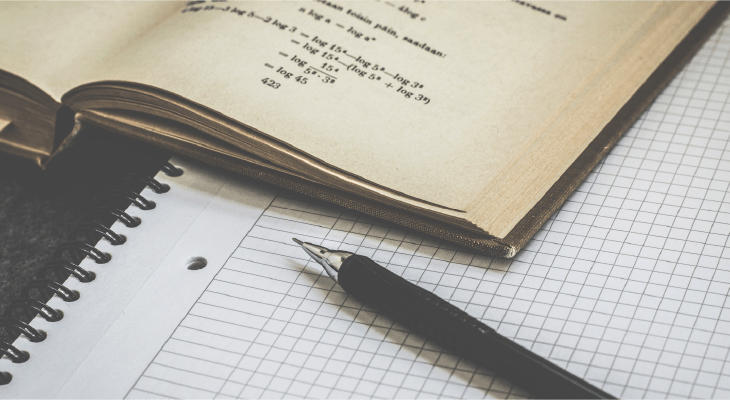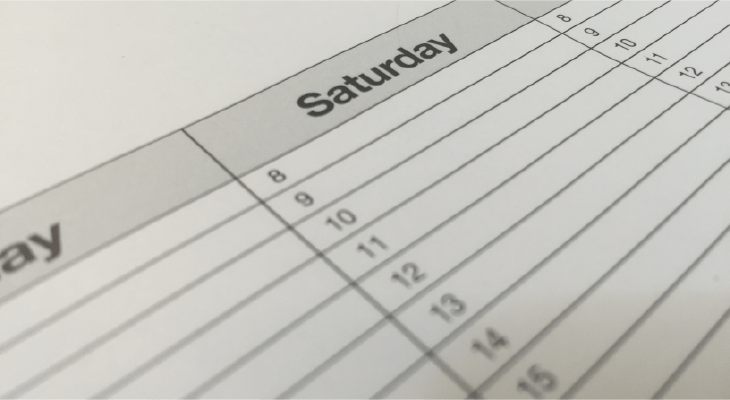23 Top Revision Tips to Survive the Exam Season
Feeling completely paralysed by the sheer amount of study material you need to revise? Here are our top revision tips to help you survive the exam season and get you the grades you want.
Updated 14 May 2019

It’s that time of the year again where everyone is scurrying about losing their heads, frantically rustling through their notes and camping out in the library until the wee hours of the morning.
Yes, exams are coming.
If you’re starting to panic and want to get a move on but feel completely paralysed by the sheer amount of material that you need to revise, take a deep breath and try to relax.
Here are some killer revision tips to help you get the grades that you want.
#1. Create a revision timetable

Write down every topic that you need to revise and estimate how many 50-minute sessions you need to master each topic. Subsequently, schedule these sessions into a revision timetable. Having a solid revision calendar will give you a good idea of how much time you can spend on each topic, making sure you’re on track and don’t end up wasting time.
#2. Flash cards are your friends
Passively reading your textbooks and notes will give you the false perception that you know your study material better than you really do. Instead, write down questions and answers on a stack of index cards and test yourself by going through these flash cards. Flash cards are a great form of self-testing, which promotes active recall that has been scientifically proven to boost and reinforce learning.
#3. Space it out
To learn flash cards efficiently, utilise the principle of spaced repetition. Organise your flash cards into 3 boxes, where correctly-answered flash cards are “promoted" up the line of boxes and incorrectly-answered flash cards are “demoted" back to the first box. The first box requires reviewing every day, the second box every 3 days and the final box every 5 days. This forces you to revisit the material that you don’t know more frequently until you learn it.
#4. Divide and conquer
Just as how you wouldn’t chomp down on a large piece of steak without cutting it into bite-sized pieces, it’s never advisable to sit yourself down for hours on end and expect to absorb all your study material. Break down your study topics into smaller sections and you will find your revision sessions to be less daunting.
#5. Set the timer

Find your mind wandering or absently checking your phone for notifications? Power through distractions by setting the timer for 50 minutes and focusing on completing a study section within the set time. If you feel the urge to reach for your phone during this period, take a few deep breaths and resist the urge to do so. You’ll be surprised how much work you can get done.
#6. Take a breather
The brain is like a muscle and continuous stress can tire it out. Schedule a 10-minute break for every 50-minute study session to go for a toilet break, do some 'deskercises' or play with your cat. As counterintuitive as it may be, taking short breaks have been scientifically found to dramatically improve focus, increasing your study effectiveness.
#7. Get the blood pumping
Research has found that exercise can improve memory and how quickly you process information. So instead of scrolling through endless Instagram and Facebook feeds, use your limited free time to squeeze in some exercise, whether it’s a quick run, some jumping jacks or a brisk walk around the block.
#8. Say ommmm...
If you didn’t already know, stress lasting even as briefly as a couple of hours can disrupt the process of creating and storing memories. To avoid elevated stress levels and reduce anxiety, try some simple meditation exercises, such as following the breath, visualisation or chanting mantras.

#9. Assemble your rockstar team

Study groups can be an effective way to quickly master topics and fill in learning gaps. A word of caution — stick to 4-5 people who you know can contribute. Otherwise, you may find yourself discussing Song Joong-ki instead of organic chemistry.
#10. Silence is golden
Having the tunes of Ed Sheeran rocking in the background may make studying less painful but it's likely to hinder your recall skills. Stick to the sounds of quietude, or if you really have to, opt for nature sounds or chill out tunes with minimal lyrics instead.
#11. Cram before bedtime
After a long day of study, it’s tempting to curl up in bed and unwind with some laugh-out-loud YouTube videos. But did you know that the brain reinforces new memories during sleep? A better idea would be to squeeze in some quick revision right before going to sleep instead.
#12. Ditch the junk food

Never underestimate the power of good nutrition. From boosting memory to improving cognitive function, chomping on the right foods can be the key to your success. So ditch those bags of potato chips and opt for these healthy munchies instead.
Apply for university with EduAdvisor
Secure scholarships and more when you apply to any of our 100+ partner universities.
Start now#13. Create a productive environment
A bad study space can amplify poor study habits and impact productivity. Organise and declutter, make sure you have sufficient light and shut off all distractions. And for the love of all that is good and decent, don’t spend all your time making your study desk Instagram-worthy.
#14. Multitasking is "multi-distracting"
Don’t get sucked into the black hole of Facebook and Instagram. Turn off all your devices, lock yourself out from distracting websites and keep your eyes on the prize. Your future self will thank you for it.
#15. Switch things up
Keep yourself on your toes by switching to another subject after completing a few topics. It may sound disorganised but studies have shown that mixing up subjects can help to cement and reinforce new memories. Not only that, it can help to keep your mind fresh so that you can study for a longer period of time.
#16. Write ‘em down

Typing notes out may be faster but writing notes by hand will allow you to grasp concepts better and remember them for a longer period of time. The trick, however, is not to copy word for word but to paraphrase and write them in your own words, as well as incorporate graphs, charts and visuals.
#17. Obsess over past year papers
Once you’ve become a flash card Yoda, it’s time to put your knowledge to the test. Start concentrating on past year exam papers at least 2 weeks before your exams. With each exam paper, go through the marking scheme rigorously, making sure you understand everything that’s in there. This will give you a better idea on how to think through an exam question.
#18. Use a cheat sheet
This will come in handy when you want to refresh your memory come exam day. Imagine that your exam is an open-book exam, but you're only allowed to refer to notes from a single sheet of A4 paper. Compress all the important information you need to know, using symbols and diagrams to avoid it from being a page full of text. Writing the cheat sheet itself will help you revise and reinforce learning. Just don’t forget to keep it away and mistakenly take it into the exam hall with you!
#19. Context is king
If you’re struggling to understand a particular concept, don’t brute-force your way or rely on rote memorisation. Instead, find out how it applies to everyday life by watching a video, asking your teachers or brainstorming with friends. Using simple analogies, examples and comparisons to connect the concept to things that you already know can deepen your understanding and allow you to grasp difficult concepts.
#20. All-nighters equals self-sabotage

Staying up all night with caffeine racing through your bloodstream may seem like hardcore dedication, but the truth is that you're likely doing more harm than good. Pulling all-nighters is a sure-fire way to decrease your performance in learning and retaining new memories, not to mention bring out the zombie in you.
#21. Get into a routine
Never depend on willpower to get things done, as research has shown that you only have a limited amount of it. Instead, developing a routine in the weeks leading to your exam will increase your chances of success. Set specific times for study each day and religiously stick to it. Once it’s part of your daily routine, it’s much easier to get your revision done.
#22. Adapt your social life
We’re not asking you to retreat into a cave and practise becoming a hermit. Instead of giving up your social life completely, organise activities to do in the evenings once you’ve finished revising. Even if it’s getting together with a group of friends for dinner, having some social contact will make studying the next day much easier. Just avoid extending these to late-night binge-drinking.

#23. And finally, just do it

No, your desk doesn’t need to be rearranged for the umpteenth time, your mother isn’t calling you and you’re not actually hungry. Procrastinating until the eleventh hour will only result in greater stress and anxiety. Believe us when we say that the hardest part is getting started. So sit yourself down and just do it.
Getting through exam season is tough. We hope these revision tips will help you sail through smoothly through this tumultuous time. Always stay positive, never give up and remember, you've got this.






